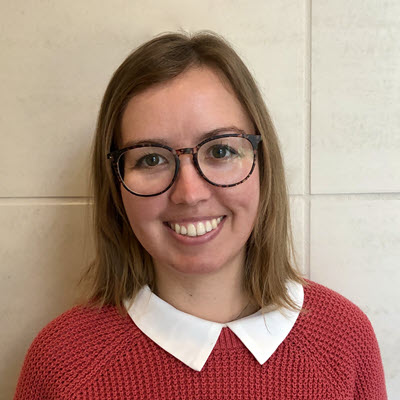Pursuing game-changing research, demonstrating leadership and a track record of impact are just a few of the requirements for a Banting Post-Doctoral Fellowship. Dr. Ania Bogoslowski, a 2021 awardee, has sailed over a high bar.
Recently recruited by the Penninger Lab and the Department of Medical Genetics, Bogoslowski is one of six University of British Columbia fellows to win the highly competitive and prestigious award this year. Two-year Banting Fellowships are valued at $70,000 a year, and designed to support both post-doctoral research and professional development.
A 2019 Killam Laureate as a PhD student in immunology at the University of Calgary, Bogoslowski said she was very surprised to be named as a Banting recipient. “I’m sure there are many other postdocs out there with much more impressive publication records and their own great ideas,” she said. “It was such a pleasure to hear that the selection committee is just as excited about my project idea as I am!”
That project involves pursuing her conviction that curing cancer means “we have to look at how neurons talk to immune cells within tumors. People like putting things in boxes,” Bogoslowski reflects. “Immunologists study immunology, neurologists study neurology, oncologists study tumours. However, by doing this, I think we’ve been missing a lot of the cross-talk between these systems and now we’re starting to see a lot more interdisciplinary discoveries. The idea that neurons can control immune cells has been recently discovered in infection, allergy, and wound healing, but no one has explored tumours yet.”
Bogoslowski will use a model for breast cancer growth with a full immune system and proper innervation. “I’ve seen a ton of neurons in the tumours,” she said, “especially around the vessels, and now I’m working on some treatments which block neurons and I’ll see how this impacts tumour growth and the immune cells within the tumours. We’re also working to get some human samples to validate what we find in mice.”
Receiving this award means that Bogoslowski will have the freedom to pursue this project comfortably for at least the next two years. The Banting comes with a research allowance that will allow her to travel for conferences and collaborations, which is important for reaching Bogoslowski’s career goal of running her own research lab.
Asked if she is building on the neutrophil work that was the focus of her dissertation, she said, “In theory, no, but I’m using many techniques I learned in my PhD and applying them to this project.
“I’m also hoping that we could get intravital imaging off the ground here at UBC,” she adds. “I spent most of my PhD at a microscope looking at neutrophils crawling around in the lymph node fighting off infection, and I miss seeing immune cell behavior. It would be amazing to take that technique and apply it to tumours, and be able to see how immune cells behave in a tumour in vivo in response to various treatments.”
During her fellowship, Bogoslowski wants to make discoveries regarding how neurons and immune cells communicate in the tumor microenvironment. “I hope this knowledge will form a basis to improve breast cancer treatment. There are so many existing therapeutics targeting neurotransmitters and neuroreceptors, which could be repurposed for cancer treatment. As scientists, if we understand more about the tumour microenvironment, then this will inform the best ways to start applying these insights in cancer patients.”
Recognized for its interdisciplinary emphasis, the Penninger lab has made important discoveries in both neuroimmunology and cancer immunology that resonate with Bogoslowski’s interest in triple-negative breast cancer. Her work is expected to have far-reaching impacts on understanding clinical disease.
“I congratulate Dr. Bogoslowski on receiving this prestigious fellowship,” said Dr. Penninger. “She is a brilliant young scientist with an amazing spirit. In the end, there are always a few people with unique talents that make a difference. Ania is one of them.”
The Banting Post-Doctoral Fellowship Program provides funding to the very best postdoctoral domestic and international applicants positively contributing to Canada’s economic, social and research‑based growth. Seventy Banting Fellowships are awarded annually with an equal distribution among CIHR, NSERC and SSHRC.
